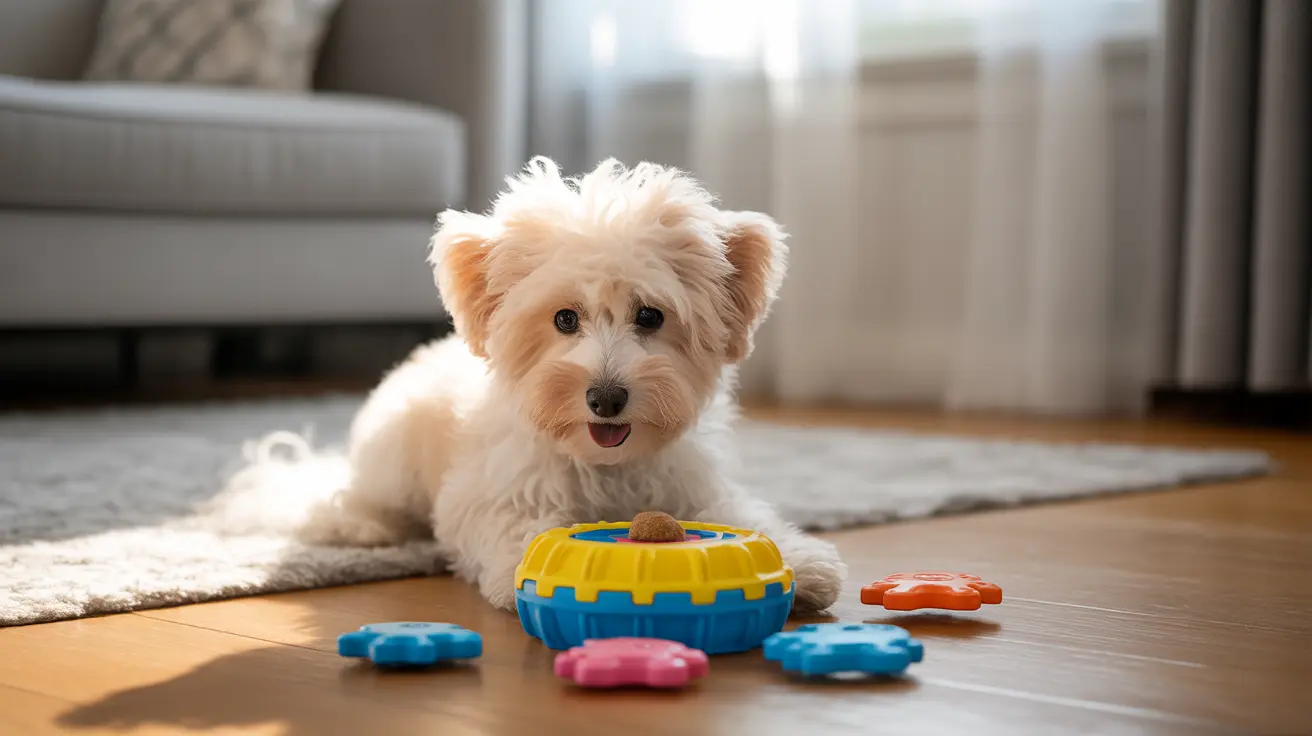The Bichon Frise, with its fluffy white coat and endearing personality, is more than just a pretty face. These charming dogs possess a unique blend of intelligence that makes them fascinating companions. While they may not top the charts in traditional intelligence rankings, their cognitive abilities and emotional intelligence set them apart in remarkable ways.
In this comprehensive guide, we'll explore the various dimensions of Bichon Frise intelligence, from their problem-solving abilities to their extraordinary emotional awareness, and understand what makes these dogs such special and capable companions.
Measuring Bichon Frise Intelligence
When it comes to canine intelligence rankings, Bichon Frises place 75th out of 138 breeds in Stanley Coren's renowned study of working and obedience intelligence. This puts them in the "average to above-average" intelligence category, alongside breeds like the Great Dane and Siberian Husky.
On average, a Bichon Frise needs 25-40 repetitions to learn a new command and will obey known commands about 50% of the time on the first try. While these numbers might not seem impressive at first glance, they don't tell the whole story of Bichon intelligence.
The Three Dimensions of Bichon Smarts
Instinctive Intelligence
Bichons were historically bred as companion dogs, and their instinctive intelligence shines through in their natural ability to read human emotions and provide comfort. This breed excels at understanding and responding to their family's emotional needs, making them exceptional therapy and support animals.
Adaptive Intelligence
This is where Bichons truly shine. Their problem-solving abilities and capacity to learn from experience are remarkable. They can remember solutions to problems they've encountered before and often develop creative ways to achieve their goals, whether it's accessing treats or getting their owner's attention.
Working Intelligence
While not top-ranked in working intelligence, Bichons demonstrate impressive capabilities when properly motivated. They can learn approximately 165 words and signals, with some exceptional individuals mastering up to 250 commands. They can even perform basic counting up to 4 or 5!
Training Your Bichon Frise Effectively
Success in training a Bichon Frise relies heavily on understanding their learning style and motivation. These dogs respond best to positive reinforcement techniques, including treats, praise, and playtime. Short, engaging training sessions yield the best results, as Bichons can sometimes have shorter attention spans.
Consistency is key - while they may show occasional stubbornness, Bichons are eager to please and will work hard to earn their owner's approval. Early socialization and training are crucial for developing a well-adjusted, confident dog.
Mental Stimulation and Enrichment
Keeping a Bichon's mind active is essential for preventing boredom and associated behavioral issues. Interactive puzzle toys, agility training, and varied daily activities help maintain their mental sharpness. These intelligent dogs excel in activities that combine physical and mental challenges, such as obstacle courses and trick training.
Frequently Asked Questions
How intelligent is a Bichon Frise compared to other dog breeds?
Bichon Frises rank 75th out of 138 breeds in working intelligence, placing them in the average to above-average category. However, they excel in emotional and adaptive intelligence, making them particularly adept at understanding and responding to human emotions.
What training methods work best for teaching Bichon Frises new commands?
Positive reinforcement techniques work best with Bichons. Short, consistent training sessions using treats, praise, and play as rewards yield the most effective results. Harsh methods or negative reinforcement can be counterproductive with this sensitive breed.
How quickly can a Bichon Frise learn tricks and obey commands?
Bichon Frises typically need 25-40 repetitions to learn a new command and will obey known commands about 50% of the time on first ask. With consistent training and proper motivation, they can learn complex tricks and routines effectively.
In what ways do Bichon Frises show emotional intelligence with their owners?
Bichons demonstrate remarkable emotional intelligence by reading their owners' moods, offering comfort when someone is upset, and adjusting their behavior based on the emotional atmosphere of their environment. They're particularly skilled at picking up on subtle emotional cues.
What activities help keep a Bichon Frise mentally stimulated and happy?
Puzzle toys, interactive games, agility training, and varied daily activities help keep Bichons mentally stimulated. Regular training sessions, social interactions, and new experiences also contribute to their mental well-being and happiness.
Conclusion
While Bichon Frises may not top the charts in traditional intelligence rankings, their unique combination of emotional awareness, adaptive intelligence, and eagerness to learn makes them remarkably capable and engaging companions. Understanding and nurturing these different aspects of their intelligence through appropriate training and enrichment activities will help your Bichon reach their full potential as a loving and clever family member.






